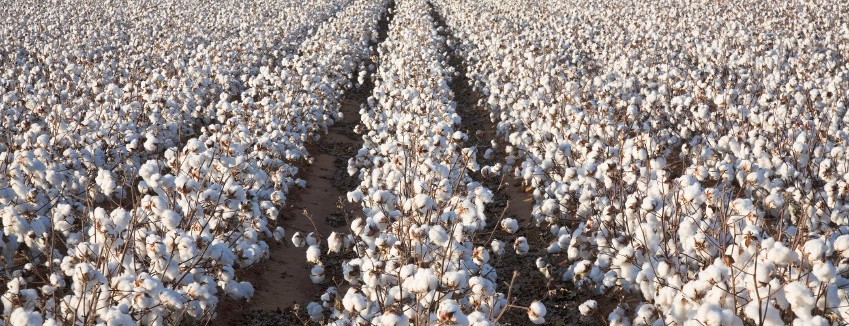TALESMA TOWELS
QUALITY
A fabric that has been passed down from generation to generation, Turkish toweling is legendary for its exceptional softness and absorbency. One of the highest quality fabrics in the world, it will continue to stand the test of time. Turkish cotton is a premium long fiber cotton that is grown in the small but productive Aegean region. Thanks to these long fibers, fewer joins are required in spinning yarns and this results in stronger, smoother cotton threads making it one of the best fabric choices.
We carefully selected the finest of this cotton and the thick pile produces towels with superior softness, while an abundance of tightly wound loops provides exceptional warmth and absorbency.
With each wash, Turkish cotton becomes even softer, fluffier and increases its absorbency to make it a long lasting, comfortable towel. At Talesma, each piece is meticulously hand sewn and crafted to the highest standards for wash-after-wash longevity. In order to maintain the superb quality of your towels, please follow the care instructions and simple tips listed here.
CARE TIPS FOR YOUR TALESMA TURKISH COTTON TOWEL
Luxury purchases are worth taking care of. When you make a premium purchase such as selecting a Talesma Towel, we want to help you keep it in the best condition possible. We have put together a few important tips to help you care for your towels, while keeping them feeling luxuriously soft and fluffy. When cared for properly, you will enjoy the superior absorbency, strength and durability of these towels for many years to come.

WASHING
Towels are best washed in warm, not hot, water with a mild detergent. To keep towels soft, we recommend using only half the amount of detergent specified on the detergent label. If the detergent isn’t fully rinsed after each wash, a residue can build up that will diminish its softness.
Do not use bleach or laundry detergents that contain optical brighteners. Bleach damages the cotton fibers in the towel, making it less absorbent and soft.
As Turkish cotton is preferred for its absorbency and softness, you do not need to use fabric softeners, they will in fact take away from the fabric’s natural qualities. Softeners contain silicon that leaves a buildup in the fabric and can deteriorate the towel fibers, making them less absorbent. If you find yourself tempted to reach for the fabric softener, try using some white vinegar instead.
To maximize the absorbency of a towel, you can add a cup of white vinegar to the rinse cycle once a month. This will help to restore the towel to full absorbency. The vinegar removes any excess detergent, which can affect the towels’ absorbency.
DRYING
Ensure towels are dry when you remove them from the dryer, but avoid over-drying them. While tumble drying will make the towel fluffy, the heat from the dryer can damage the integrity of the cotton, there must not be overdone. To avoid damage, we recommend using a lower heat setting until dry.
Alternating between air and heat drying will also to help keep the towels fluffy and protect the composition of the cotton. The ideal way to dry textiles is air dry only. If you must tumble dry, use a cool-medium setting.
PULLED LOOPS
The number of loops, their height and density influence the overall feel of the towel. The loops are flexible to the towel suppleness. Take care to avoid contact with sharp objects or edges such as rings, hooks or splintered wooden surfaces. Should this inadvertently happen, do not pull the thread, instead just cut off the pulled loop with a pair of scissors. As all of our towels are woven, a pulled loop with not unravel the towel.
SUSTAINABLE COTTON
Sustainability is sewn into the fabric of everything we do — from how our terry is made to the work we do to help protect our planet. Talesma has a long history of caring — both for the communities in which we work and live, and for the environment. We believe that making a mark in the world is about what you do, but also how you do it.

WHY MORE SUSTAINABLE COTTON MATTERS?
Through the Better Cotton Initiative (BCI), cotton farming has become better for the environment and the farmers who grow it. When grown conventionally, cotton farming uses large amounts of chemicals and water. This practice often leads to significant health risks to famers, soil erosion and water scarcity. And since most cotton is grown on small farms in developing countries, many farmers struggle to make a profit. Better Cotton means producing cotton with less water, chemical fertilizer and pesticide, while increasing profit margins for farmers.
Visit the BCI website to learn more.
WHO GROWS BETTER COTTON?
For the second harvest of Better Cotton in Turkey in 2014, 530 BCI Farmers produced 23,000 MT of Better Cotton lint on 13,000 hectares, more than triple the 7,000 MT produced the year before. Looking ahead, the ambitious target is to double Better Cotton production each year, which this second harvest has given strong indicators of us being able to achieve. The long-term objectives are to reverse the decrease in Turkish cotton production, and to expand Better Cotton production to every cotton-producing region in
Turkey.


